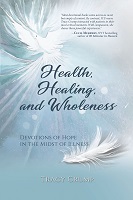My Heart Is Full
 My heart is full when I spend time with people I love. It’s also full when I miss those same people. The first feels good. The second hurts.
My heart is full when I spend time with people I love. It’s also full when I miss those same people. The first feels good. The second hurts.
My heart is full means I feel strong emotions.
I usually feel glad. However, it also refers to times I feel:
- Sad, down in the dumps
- Mad, fit to be tied
- Afraid
- Lonely
- Any strong emotion
Emotions affect physical reactions. My heart beats faster with strong emotions. It beats slower if I feel relaxed, snug as a bug in a rug.
My heart is full of different emotions when I see this picture.
- Memories of good times fill me with joy.
- Missing our get-togethers brings tears.
- Knowing my dad, mom, and younger nephew are in heaven comforts my heart.
- Looking forward to seeing them again makes my cup run over.
I give thanks for God’s never-failing presence and the emotions to deal with every life event.
“The Lord is my strength and my shield; my heart trusts in him, and he helps me. My heart leaps for joy, and with my song I praise him” (Psalm 28:7 NIV).
 If your heart is full of painful emotions due to experiencing a medical crisis, walking alongside someone who is, or caring for a loved one, my friend Tracy Crump’s book, Health, Healing, and Wholeness: Devotions of Hope in the Midst of Illness, may help. On Saturday, October 30, I will randomly select the name of one person on my mailing list to receive a free copy of Tracy’s book. Please encourage your friends to also subscribe to my mailing list for a chance to win.
If your heart is full of painful emotions due to experiencing a medical crisis, walking alongside someone who is, or caring for a loved one, my friend Tracy Crump’s book, Health, Healing, and Wholeness: Devotions of Hope in the Midst of Illness, may help. On Saturday, October 30, I will randomly select the name of one person on my mailing list to receive a free copy of Tracy’s book. Please encourage your friends to also subscribe to my mailing list for a chance to win.
Thanks to Jane Ashley Pace for the suggestion.
Do you have an expression you want explained or a thought about this one? If so, please comment below.
If you enjoyed this post, please share it with your friends.
 We don’t want anyone to cry crocodile tears for us. Neither do we want to cry crocodile tears for anyone else.
We don’t want anyone to cry crocodile tears for us. Neither do we want to cry crocodile tears for anyone else. We all get down in the mouth sometimes.
We all get down in the mouth sometimes.